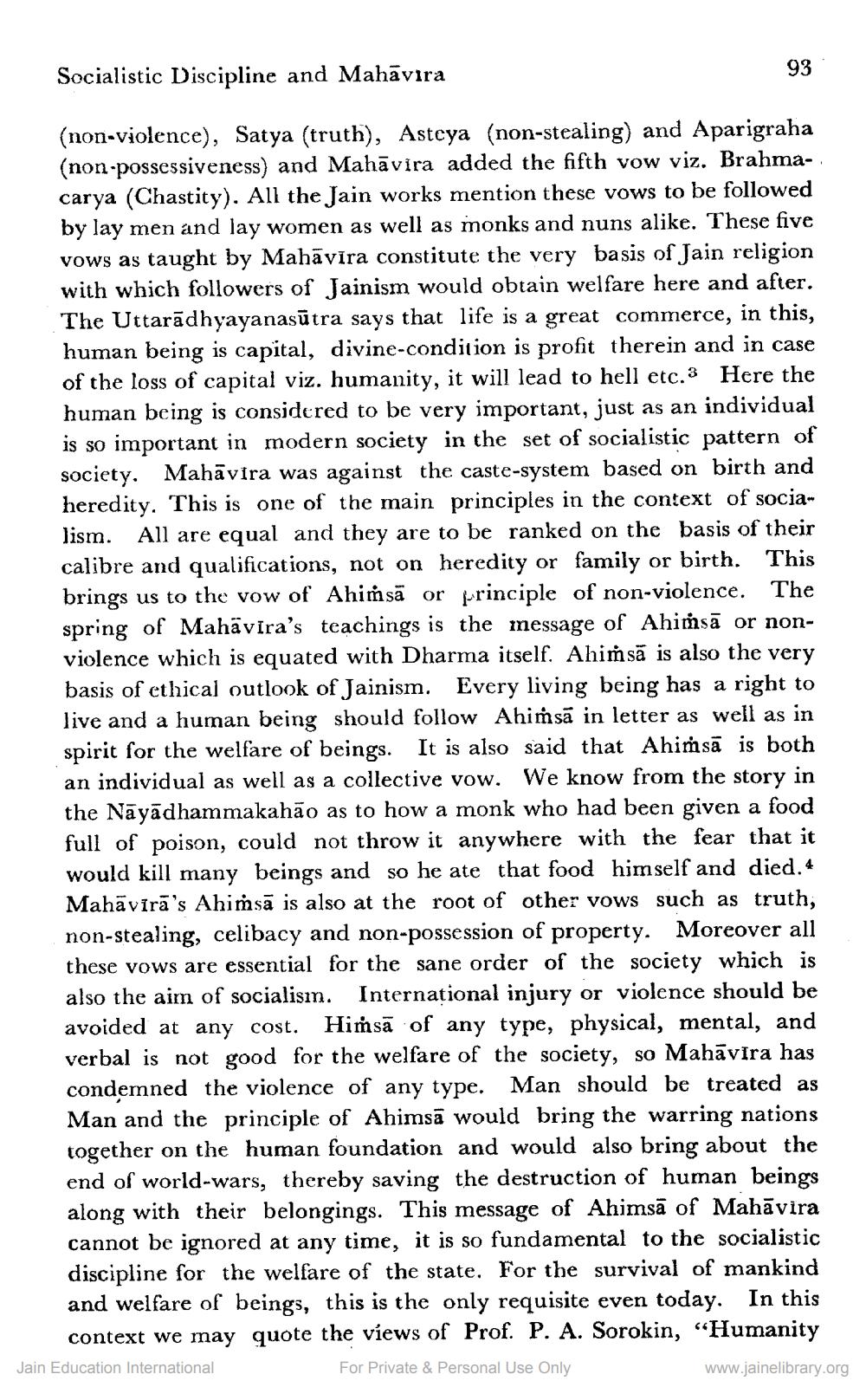________________
Socialistic Discipline and Mahāvira
93
(non-violence), Satya (truth), Asteya (non-stealing) and Aparigraha (non-possessiveness) and Mahāvira added the fifth vow viz. Brahmacarya (Chastity). All the Jain works mention these vows to be followed by lay men and lay women as well as monks and nuns alike. These five vows as taught by Mahāvīra constitute the very basis of Jain religion with which followers of Jainism would obtain welfare here and after. The Uttarādhyayanasūtra says that life is a great commerce, in this, human being is capital, divine-condition is profit therein and in case of the loss of capital viz. humanity, it will lead to hell etc.3 Here the human being is considered to be very important, just as an individual is so important in modern society in the set of socialistic pattern of society. Mahāvira was against the caste-system based on birth and heredity. This is one of the main principles in the context of socialism. All are equal and they are to be ranked on the basis of their calibre and qualifications, not on heredity or family or birth. This brings us to the vow of Ahiṁsā or principle of non-violence. The spring of Mahävira's teachings is the message of Ahiṁsā or nonviolence which is equated with Dharma itself. Ahimsā is also the very basis of ethical outlook of Jainism. Every living being has a right to live and a human being should follow Ahimsã in letter as well as in spirit for the welfare of beings. It is also said that Ahiṁsā is both an individual as well as a collective vow. We know from the story in the Nāyādhammakahão as to how a monk who had been given a food full of poison, could not throw it anywhere with the fear that it would kill many beings and so he ate that food himself and died. 4 Mahāvīrā's Ahimsā is also at the root of other vows such as truth, non-stealing, celibacy and non-possession of property. Moreover all these vows are essential for the sane order of the society which is also the aim of socialism. International injury or violence should be avoided at any cost. Hiṁsā of any type, physical, mental, and verbal is not good for the welfare of the society, so Mahāvira has condemned the violence of any type. Man should be treated as Man and the principle of Ahimsā would bring the warring nations together on the human foundation and would also bring about the end of world-wars, thereby saving the destruction of human beings along with their belongings. This message of Ahimsā of Mahāvira cannot be ignored at any time, it is so fundamental to the socialistic discipline for the welfare of the state. For the survival of mankind and welfare of beings, this is the only requisite even today. In this
context we may quote the views of Prof. P. A. Sorokin, "Humanity Jain Education International For Private & Personal Use Only
www.jainelibrary.org




